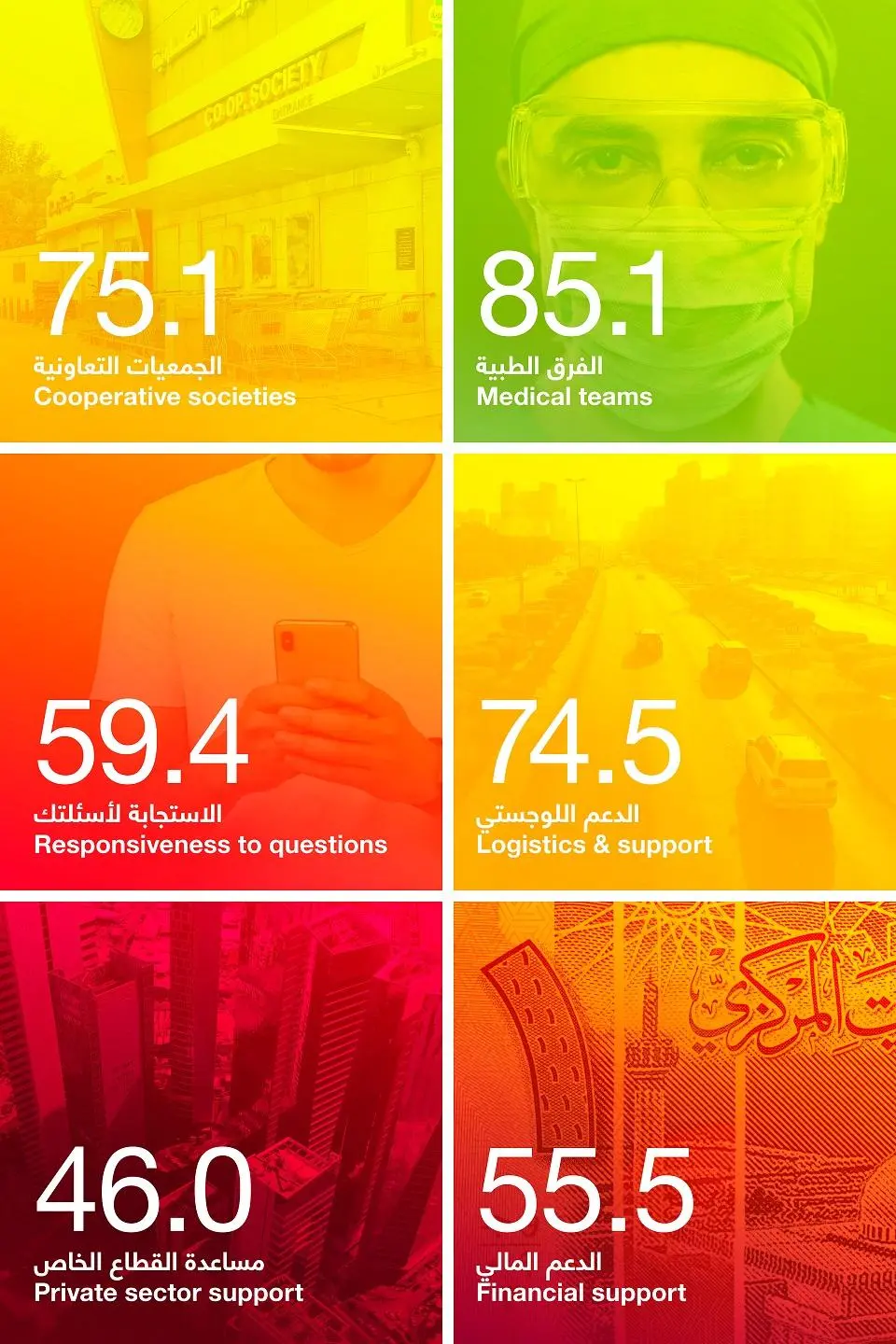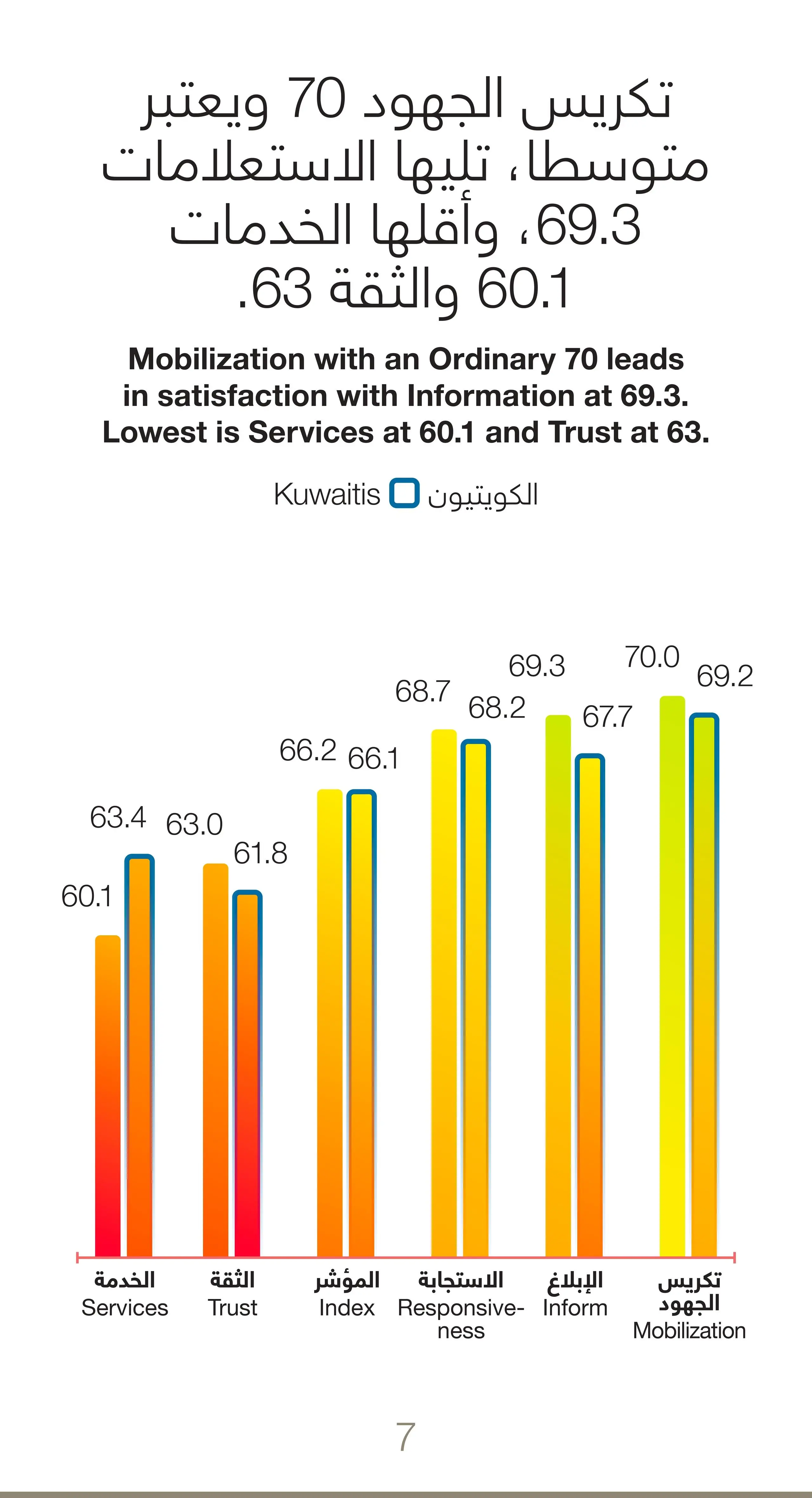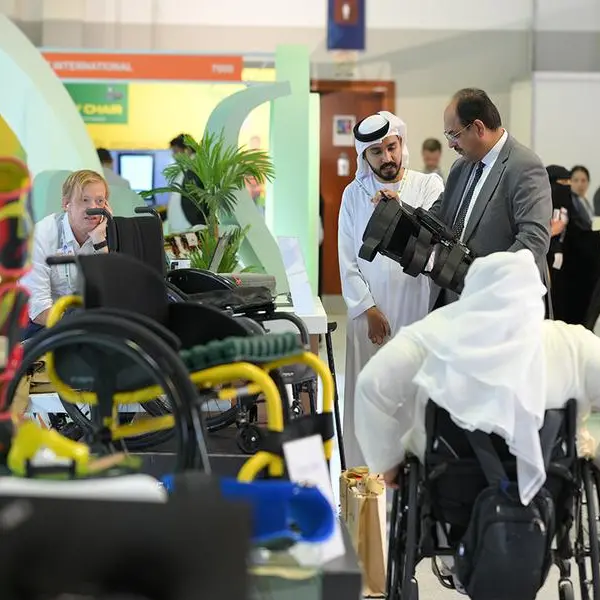- 2,570 authenticated assessments of which 1,038 are Kuwaitis
- The heroes are Frontline Medical teams, Co-operative Societies and Logistics and Supply Support teams
- Overall satisfaction came in at 66.2 points whereas Kuwaitis specifically came in at 66.1 points
- Healthcare and Finances are top concerns for the public while education is the least
Kuwait: Service Hero, the company responsible for the region’s only independent and neutral consumer powered customer satisfaction index, today released the results of its first phase of the nationwide online ‘Kuwait’s Response to COVID-19’ survey, which was run in collaboration with and with the support of the General Secretariat of the Supreme Council for Planning and Development and its Kuwait Public Policy Center. The survey aimed to measure the public’s satisfaction with national response efforts to manage the Coronavirus pandemic. It covers public, private and civil society pillars and was measured against seven key factors, namely; concerns, trust, mobilization, services, responsiveness, being informed, media sources and thoughts of the future.
The survey samples were collected online during phase 1 of the lockdown, specifically from 13-31, 2020, using email invitations, social media sites, and by engaging civil society and the public to share their feedback. A total of 2,570 vetted and authenticated responses form the basis of the sample ensuring a 95% confidence level and a +/- 3% error margin. The sample is 40% Kuwaiti, 13% Arab and 34% non-Arab. The sample also comprises 47% college graduates and 22% holding a higher degree.
Scores are reported out of 100 points and are interpreted as follows:


The results of the Service Hero survey showed that frontline medical teams came in at the lead at 85.1 points out of 100 followed by the Cooperative Societies at 75.1, Logistics and Support at 74.5, Responsiveness to Questions at 59.4, Financial Support at 55.5 and the least scoring was Private Sector Support of its staff, which came in at 46.0. The overall assessment came in at a Bland 66.2 satisfaction level, with the overall satisfaction of Kuwaiti’s scoring a similar 66.1point score. Insert bar graph
Commenting on this initiative taken to assess government performance during this pandemic, Faten Abu-Ghazaleh, Service Hero President said: “At Service Hero, we have the right tools and platforms to assess and evaluate customer satisfaction across various dimensions, but it has always been in relation to the performance of the private sector. As a socially responsible corporation, we chose to utilize our platforms and reach to support government efforts, by gauging the level of satisfaction of the general public in relation to government efforts during to combat the pandemic. More importantly, by leveraging our knowhow and expertise in collecting nationwide feedback we can align findings with government efforts, with the aim to elevate the overall experience and ensure the highest standard of service excellence and customer satisfaction.”
“This round of assessments was critical for Service Hero as it is one that impacts the nation, and provides the government of the state of Kuwait with imperative insights into just how far their efforts have reached, and components of the strategy and overall plan has hit the mark, and which require tweaking and development. I would like to thank each and every governmental entity that has dedicated its time, resources and workforce for the good and wellbeing of our nation, and to ensure that every individual’s wellbeing residing in this country was of utmost priority, with the Ministry of Health at the very lead”, Abu-Ghazaleh added.
H.E. Dr. Khaled A. Mahdi, Secretary-General of the Supreme Council for Planning and Development said: “In an effort to better understand the effectiveness of government response and action to COVID-19, the General Secretariat of the Supreme Council for Planning and Development and its Kuwait Public Policy Center supported the Service Hero initiative to assess the "Kuwait Response to COVID-19", which was conducted by using a scientific methodology to collect public opinions. In general, we look forward to developing policy-building mechanisms through an evidence-based strategy, as it is necessary to focus on serving citizens in line with the general policies of the national development plan. Today, the epidemic has led us to a trial period, when the government has been prompted to deploy every resource, skill, experience and strategy for the crisis in order to ensure the safety of its residents. In fact, the pandemic provided us with an opportunity to understand areas that need better development and that have proven robust and require support for their sustainability. "
"The survey acts as an additional initiative to further support our development partners in putting in place integrated development policies. When using new methodologies to build evidence-based policies while integrating public opinion into a scientific program, only then will we truly be able to build more resilient and practical public policies that support the overall implementation of Kuwait’s 2035 Vision and all its key pillars. "The most satisfied segments overall with the government’s approach to handling the crisis were those with a lower education, those above 40 years of age, females, Jahra and Kuwait City residents, and government employees. Whereas the less satisfied segments were those who work in the private sector, those under 40 years of age, males, Farwaniya and Mubarak Al Kabeer residents, and college graduates.
Looking at the assessments in relation to the five key factors relating to crisis management reveals that the highest satisfaction is Mobilization, which ranked first at 70.2 points followed by Information, which ranked second at 69.2 points. The third ranked is responsiveness at 68.7 points, followed by trust, at 63 points ranking fourth, and ranking fifth, reflecting least satisfaction was services at 60.1 points.


Concerns:
The findings also showed that from a ‘Concerns’ point of view, Healthcare came in highest at 29% and Finances at 27%, posing as the top concerns for the public. Mental Wellbeing at 17% came in as a slightly more significant concern for most compared to Education at10% and Food Basics at 16%.
Media Sources and Future Predictions:
The survey showed that top information sources was online news sites followed by Instagram. Whereas the least source of information people rely on is WhatsApp coming and Facebook. The assessments also showed that top information sources for Kuwaiti’s in particular are online news sites and traditional press and TV, followed by Twitter.
The survey also assessed the expectations of the general public, in relation to the expected lockdown end, where 39% of the sample expects the end of September to be the end of the lockdown, and 28% expecting to be by the end of August. Moreover, 29% of people expect that life will return to normal by quarter 1 of 2021, whereas 24% expect things to normalize by end of 2020.
Service Hero also included a breakdown of the comments left by participants in the survey, where the majority; 77% are Criticisms and only 12% were positive, while 11% were Neutral. Further reporting showed that most of the topics within the commentary revolved around the government, followed by financial or economic related comments, where13% of the sample praised government efforts, in addition to comments that addressed healthcare, the lockdown, and government decision-making.
Service Hero Recommendations:
Based on the overall findings and analysis of the collected data, Service Hero has listed the key recommendations to be considered to ensure that the needs and concerns of the general public are met, while taken into consideration the different segments of Kuwait’s communities.
The future relies on the ability to build trust. This entails the ability to:
- Develop a more transparent approach that relies on a frequent multi-channel centralized communication to gains people’s trust. Daily updates on online and traditional platforms that are bilingual will build awareness and earn the trust of the community.
- Aim to build a deeper sense of faith and hope among all communities, by prioritizing and immediately addressing issues across the different segments of society that have proven to hinder progress. This can also be supported by intensifying efforts and communications, through launching awareness building campaigns about tracing, detection, and all key safety procedures using a centralized online and social media hub which has proven its importance as a channel of communication. Ensuring centralized hotlines that work 24 hours a day along with response teams on multiple social media channels are also practices that would elevate the sense of faith and hope.
Effectively responding and making service the key:
- Look into the overall management approach of locked down areas, by enhancing communication techniques and channels, and placing emphasis on the food supply chain as a key priority, which has been severely impacted by the lack of mobility, specifically for the areas that have been under full lockdown since the start of the pandemic.
- Better enforcement of compliance to hygiene, mask wearing, and curfew across all segments and communities to reflect a stronger sense of equality when it comes to controlling the pandemic, which in turn will also tone down the current racist sentiment in circulating communications.
- Elevate customer service standards by formulating well-trained Response Teams, whose key objective is to enhance responsiveness to enquires, calls, and the channeling of information to government call centers and websites, through a well-structured centralized hub
- Take immediate measures to roll out much needed reforms to the decision-making policies and process, to ensure an impactful and productive approach in relation to supporting and reviving the economy and offering effective aid where most needed
- Formulate a committee to address all matters related to labor, rent and employee grievances within the private sector, while outlining a clear role for the private sector in lifting and supporting the current economic status and working hand in hand with full alignment with the government to take the Kuwait economy to new heights, away from corruption and favoritism
- Fairly address Kuwaiti vs. resident mentality without alienating qualified professionals, and defying the racial conversation. This also falls in line with the need for the government and private sectors to work hand in hand to restructure the employment scene and shifting focus to developing and elevating the employment sector by bringing on professional and skilled caliber and labor.
That said, the survey is currently ongoing and will be reporting on a second phase of results after the conclusion of this period.
© Press Release 2020
Disclaimer: The contents of this press release was provided from an external third party provider. This website is not responsible for, and does not control, such external content. This content is provided on an “as is” and “as available” basis and has not been edited in any way. Neither this website nor our affiliates guarantee the accuracy of or endorse the views or opinions expressed in this press release.
The press release is provided for informational purposes only. The content does not provide tax, legal or investment advice or opinion regarding the suitability, value or profitability of any particular security, portfolio or investment strategy. Neither this website nor our affiliates shall be liable for any errors or inaccuracies in the content, or for any actions taken by you in reliance thereon. You expressly agree that your use of the information within this article is at your sole risk.
To the fullest extent permitted by applicable law, this website, its parent company, its subsidiaries, its affiliates and the respective shareholders, directors, officers, employees, agents, advertisers, content providers and licensors will not be liable (jointly or severally) to you for any direct, indirect, consequential, special, incidental, punitive or exemplary damages, including without limitation, lost profits, lost savings and lost revenues, whether in negligence, tort, contract or any other theory of liability, even if the parties have been advised of the possibility or could have foreseen any such damages.



















